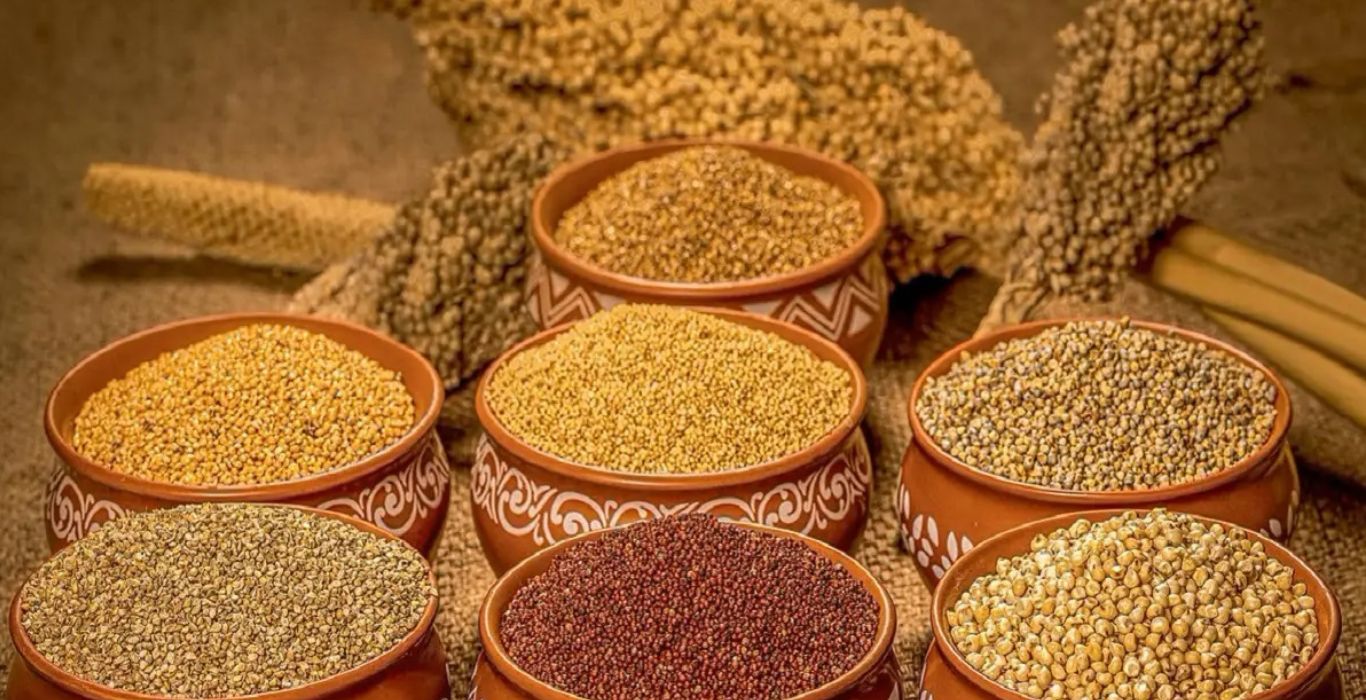As winter approaches, many of us look to revamp our diets with nutritious foods. This time of the year brings a natural desire for wholesome meals that keep us energized and healthy during colder months.
Among the many food choices available, incorporating whole grains into our diet often plays a crucial role in improving our winter wellness.
Wheat and rice are staple grains in Indian households but are they the healthiest grain for winter or should we consider including ancient grains like millets in our diet to improve our winter wellness?
In this post, we will make a comparative analysis of millets Vs wheat and help you make the right choice for your winter diet.
Wheat Vs Millet: Which is healthier for your winter diet?
Millets are Perfect for Fulfilling Winter Nutritional Needs
Millets like bajra and ragi are nutrient powerhouses and are packed with various essential minerals like iron, magnesium, and calcium. These grains provide a sustained energy release and help you stay active throughout the day. Moreover, millets also support bone health and boost immune function during winter. The warming properties of millets like bajra make them a perfect fit for your winter diet and make them a superior choice than wheat for cooler months.
Millets help in improving gut health and support healthy digestion
Gut health is an important aspect of our overall health. However, gastric issues like slower digestion and constipation are common during winter. Being high in fiber, millets are preferable than wheat to improve gut health and support healthy digestion.
Research shows that popular millet recipes, like millet porridge, help relieve constipation by promoting intestinal activity. Moreover, millet also reduces harmful bacteria and boosts good bacteria like Bifidobacterium and Lactobacillus in the gut. As a result, it exhibits strong prebiotic benefits and improves overall gut health.
Millets are Gluten-Free
Nowadays, gluten sensitivity or celiac disease has become a common distress in many people. For people with gluten sensitivity, millets offer an excellent alternative to wheat. Being naturally gluten-free, millets allow for easy digestion without causing inflammation or discomfort in the gut and serve as a great alternative to traditional grains like wheat, barley or rye.
Millets Bring Diversity to Your Palate
Including millets in your meals adds a much-needed diversity to your diet and breaks away from the monotony of wheat-based dishes. Millets are available in different types such as pearl millet, Ragi or finger millet, little millet and so on. Each one has its unique flavor and distinct taste. You can rotate them in your diet to get nutritional benefits and create a more vibrant food experience.
Millets are a Great Option for People with Wheat Allergies
If you are allergic to or intolerant of wheat, millets are an excellent alternative. Many people unknowingly suffer from wheat sensitivities, which can cause bloating, skin issues or fatigue. Switching to millet-based foods reduces your exposure to potential allergens and allows your body to thrive on wholesome grains without adverse effects.
Millets are better option for diabetics
Millets have a lower glycemic index than wheat. It means millets cause a more gradual rise in blood sugar levels compared to wheat and can be used as a great grain option for people with diabetes. Thus, including millets in your diet can help manage blood sugar levels more effectively, especially during winter, when sugar cravings tend to rise.
Which is Healthier for Your Winter Diet?
Both wheat and millet have their own set of benefits, but when choosing the healthier option for winter, millet may take the lead. Its high fiber content, rich mineral profile and ability to support gut health and immunity make it an excellent grain for the colder months.
However, whole wheat is still a strong contender, especially when consumed in its unrefined form. It is all about balance and food diversity to maintain gut health. Listen to your body and include all kinds of grains for balanced meals.
Conclusion
In conclusion, while both wheat and millets are nutritious, millets stand out as the superior option for winter nutrition. Adding millet to your winter meals can enhance your overall nutrition.
If you are looking to include some nutritious, millet-based products in your winter diet, visit our website for a variety of winter-friendly millet-based options.







